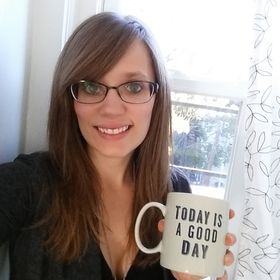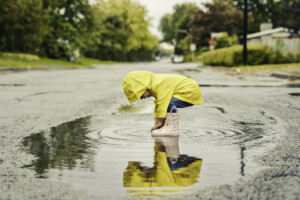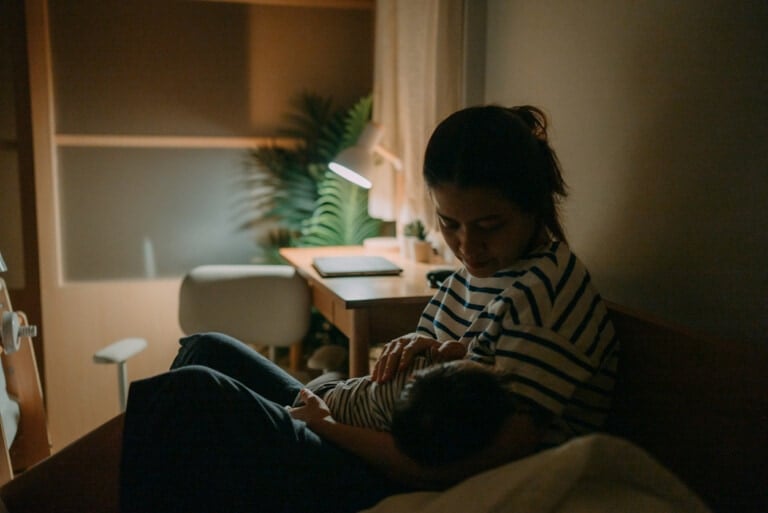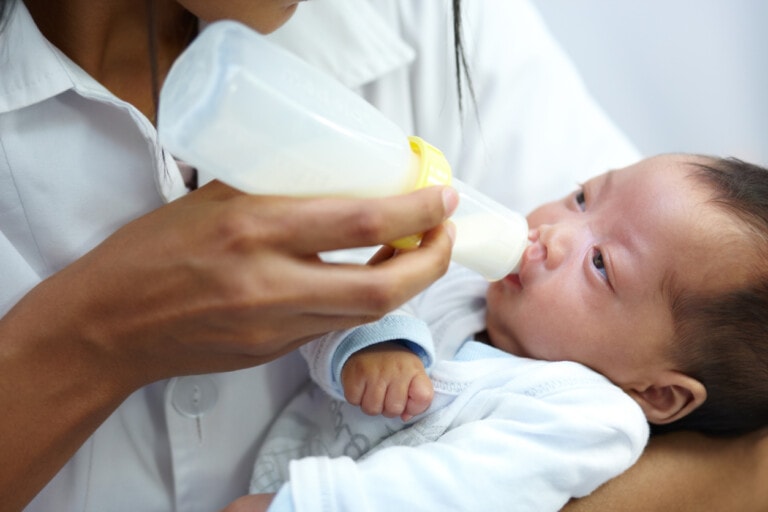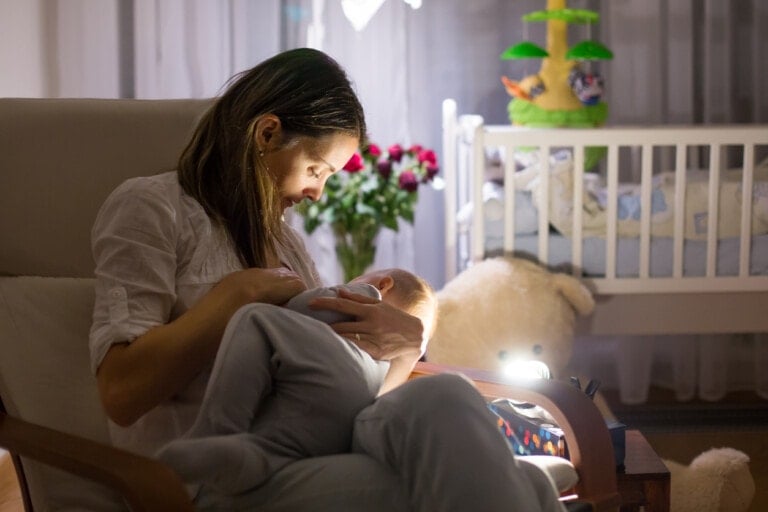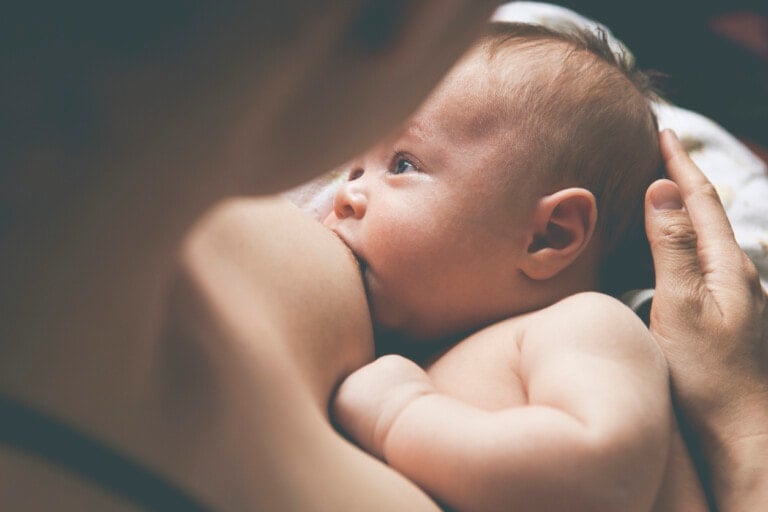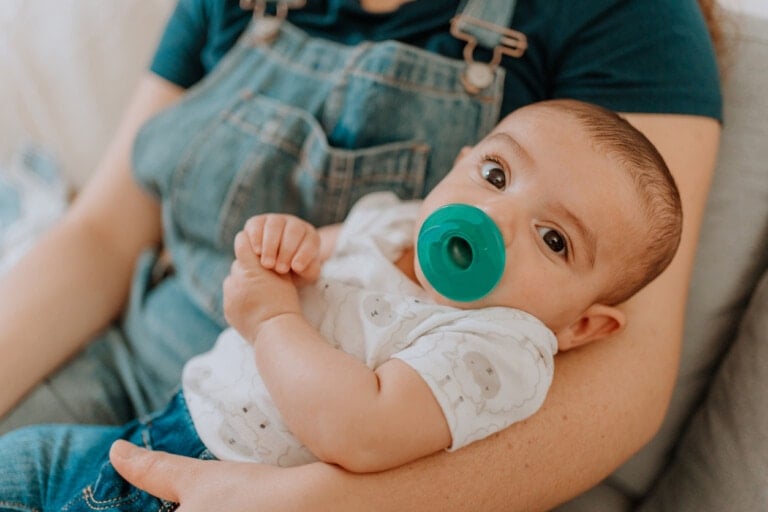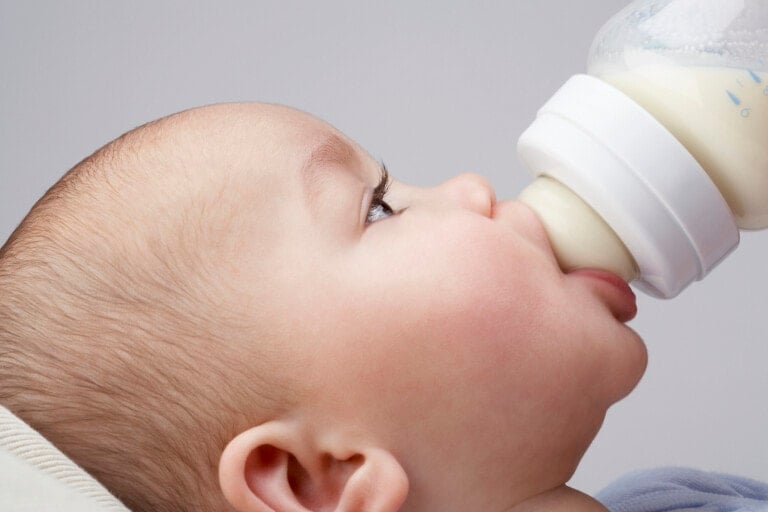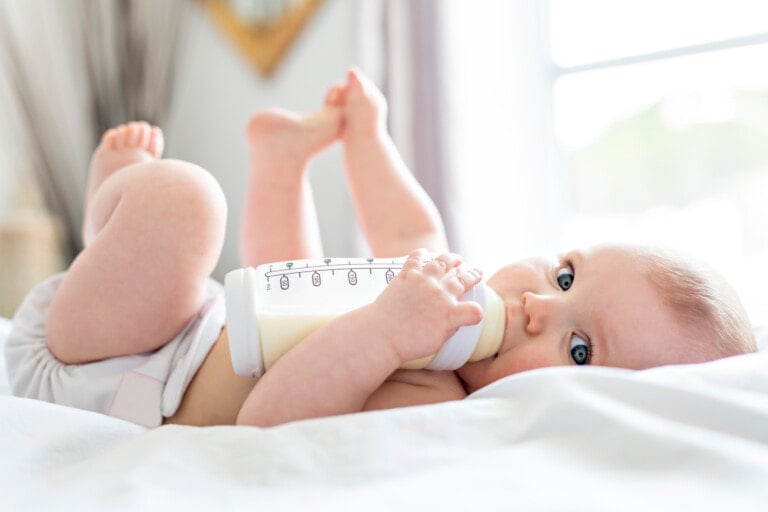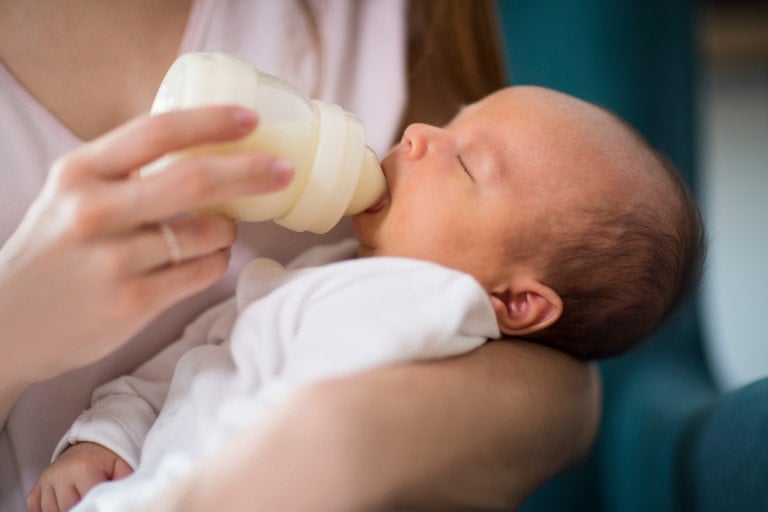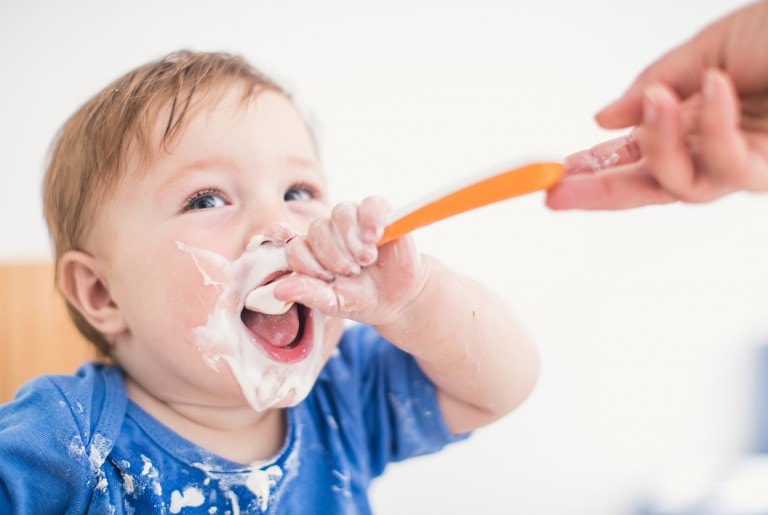Breastfeeding is a normal part of life for many babies and toddlers. However, if your older child hasn’t experienced breastfeeding or isn’t usually around it, they may have questions when they see a younger child breastfeeding in a public place. Or even when they see their mother breastfeeding their new sibling for the first time. It can be a brand new sight, even for kids who have experienced breastfeeding and have either forgotten details or simply don’t usually see the situation from an outside perspective. So, talking about breastfeeding may seem like an awkward conversation for them. But they are certainly going to be curious.
Your relationship with breastfeeding might be different based on your family situation. If you’re a single dad with kids who are more accustomed to a bottle, your conversation might look different from a mom breastfeeding the youngest baby of the family. Regardless of the logistics, the principles of the discussion around breastfeeding tend to ring true, no matter the audience.
Teens and preteens will probably be able to engage in more in-depth conversations about the social implications and health benefits of breastfeeding. Younger kids, however, will probably work best with the basics. But it’s never too early or too late to start discussing breastfeeding with your older kids. You can tailor the conversation to your kids and your family to provide an understanding and talk about this beautiful process together.
It’s Perfectly Natural
This is one of the most important talking points about breastfeeding, especially in our modern world. Breastfeeding is simply part of a normal, healthy life for many families who choose to pursue it. You can explain to your child that mammals have mammary glands in their breasts that produce milk designed to feed babies. And since humans are mammals, that includes mothers and babies like your own family.
You can explain further that breastfeeding has been a part of life for thousands of years.1 It’s how the human body was made to feed babies. Nursing is the most normal, natural process for babies to get nutrients, and starting the conversation there is crucial.
Encouraging a healthy view of natural body processes is part of encouraging overall health in your household.2 This conversation is just as crucial as addressing sexual health, encouraging physical activity, and educating about mental health.
If your kids are on the younger end — perhaps not breastfeeding themselves but young enough to be receptive to norms and ideas you set for the household — this conversation can start simply by treating breastfeeding like the natural, normal process it is. Don’t make a big deal of it, no hiding away or covering up, so long as that’s comfortable for you. Just feeding your baby like you usually would.
Babies Need Food
Just like everybody else, babies get hungry. And when babies get hungry, as you know, they must be fed. This can be a part of the conversation in its simplest forms. You can explain that this is how many babies get their food and that they need to eat just like anyone else when they get hungry. This can apply to seeing a breastfeeding mother in public or responding to a curious inquiry about breastfeeding at home.
Breasts Are Not Primarily Sexual
If your kids are on the older end — teens and preteens in particular — they may very well be influenced by the world around them. Often, this fact can mean that they learn new things from their surroundings and introduce you to new ideas. However, this can also mean that they have the opportunity to absorb toxic ideologies from others. From school dress codes policing young girls’ bodies to peers who were raised to objectify women, your kids may have picked up the idea that there is something inappropriate or indecent about breasts.
Though our culture may denote otherwise, breasts’ primary purpose is to feed babies. The sexualization of the breast was well underway by the 19th century. It was accelerated post-World War II with the rise of the pinup girl poster, Playboy magazine, and the popularity of such Hollywood icons as Marilyn Monroe.3 The result was as breasts became more sexualized, they became less functional.
Explain to your kids that there is nothing immodest about using breasts for their intended purpose. Ask them about their opinions. Then, have an open conversation about breastfeeding in the context of the world and your household.
Everyone Is Different
Some families prefer breastfeeding into the toddler years, whereas some choose to contain it into infancy.4 Some families don’t breastfeed at all. Some single dads bottle feed, and traditional nuclear families go back and forth between breastfeeding and formula. Some working moms pump their breast milk, while others nurse and stay home. Every mother, child, and family is different, and it’s important to center that in your conversations with your older kids.
Not every family looks like your family, and discussing the variations can help to normalize and create a broader understanding of breastfeeding for your child. This conversation isn’t just about your family situation. It’s also about preparing your child for adulthood, where they can be well-adjusted, open, and understanding.
No matter the age of your children or what your family looks like, you can open up a dialogue around breastfeeding to educate and create understanding. Talking about breastfeeding with your older children will help them in many ways. When your kids understand that breastfeeding is a natural, healthy process, they’ll go through life with a better perspective and openness for others. And perhaps a more profound comfort within their own family.














